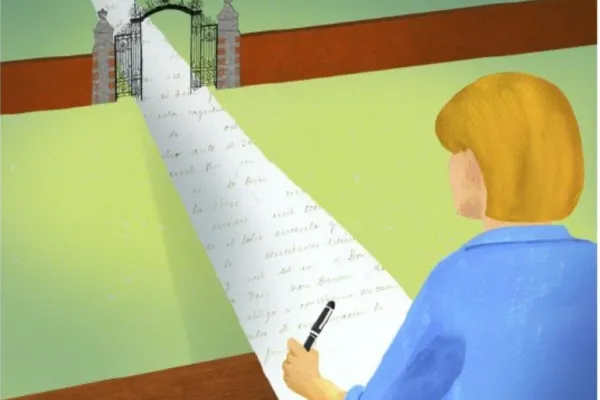A Lifetime of Advice
Alum News
Published December 9, 2020
I teach at a school like Smith (albeit co-ed), and, even though the alumni and trustees are generally supportive of the liberal arts, sometimes we faculty need to remind the powers that be that students are not customers, that education is not a product.
One reason the analogy doesn’t work is that even an extended warranty on a refrigerator eventually runs out; the guarantees of a college degree don’t. One permanent warranty is the relationship between advisers and alumni. I correspond with many alumni: I read and comment on their manuscripts; I meet with their children on college tours—I’ve taught many of them. I still write letters of recommendation for alumni from as long ago as the 1980s.
My own infinite warranty was with my late adviser, Frank Ellis, Mary Augusta Jordan Professor of English (1916–2007). Frank and his wife, Connie, modeled grown-up life for me. I set out for Spain with the Smith Glee Club in 1973 armed with Frank’s own Blue Guide. Frank inspired me to seek an academic career in his field, poetry and satire of the 18th century. He came to my wedding at Helen Hills Hills Chapel—and gave me an original printing of Alexander Pope’s satirical verse epistle “Of the Characters of Women,” bound in leather.
I attended graduate school, as Frank had, at Yale; he gave me a summer job at the Yale Editions of the Private Papers of James Boswell. And he wrote (yes) letters of recommendation and of support for my tenure and promotion cases. I visited Frank and Connie often over the years, not only during Reunions.
When I was shocked to find that my husband of 30 years had “met someone else,” I wrote a few friends (longhand, as I do) trying to work through my sense of betrayal. Immediately on receiving the letter, Frank called. (Our correspondence had always been by mail, typed [on Frank’s side] on Corrasable Bond.) “Debbie, this is Frank Ellis. I have two things to tell you.”
This was my adviser talking: startled, I picked up a pencil.
“First, get as much money as you can.”
I put the pencil down.
“I had already thought of that, Frank.”
“Second, you must remarry at once.”
I just started laughing. One thing that had seemed clear to me was that I was alone now, with my children away at school, and that I’d stay that way. For one thing, I live in a village of about 3,000 people; meeting someone seemed a preposterous idea. (Besides, what did Frank know of divorce? He had been devoted to Connie throughout their long marriage until her death.)
“Couldn’t you meet a nice guy in the French department?”
“Well, several of them are single—and gay.”
“I hadn’t thought of that. But you don’t want to be a lonely, bitter woman. Take my advice.”
As ever, I took Frank’s advice; it was the first time I heard the word “remarry,” and he actually made me think about it.
I’ve just celebrated my 16th anniversary with someone I had never thought to look for—until Frank’s call. Frank couldn’t make it to the wedding, but sent a card: “I’m so happy, I could purr.”
The unbounded relationship between Smith alumnae and their advisers is a model I try to follow with my own students, another reason why Smith is the best thing that ever happened to me.
Deborah Knuth Klenck ’74 recently became professor emerita at Colgate University, where she taught British poetry and prose of the 18th and early 19th centuries for 42 years.
This story appears in the Winter 2020-21 issue of the Smith Alumnae Quarterly.
SMITH IN MY LIFE
Have a story about how Smith has influenced your life? Send your 600-word essay to saq@smith.edu for consideration.
Illustration by Ellen Weinstein
